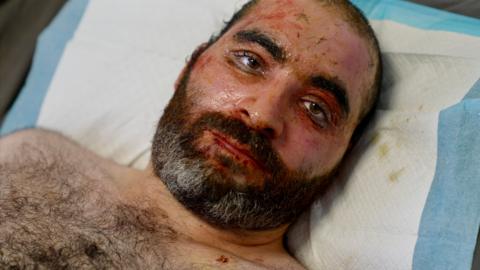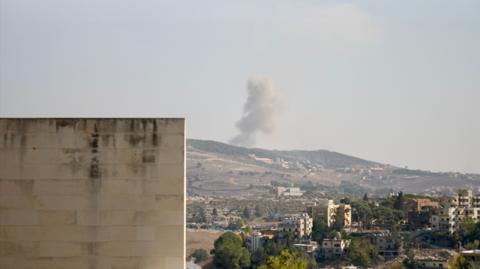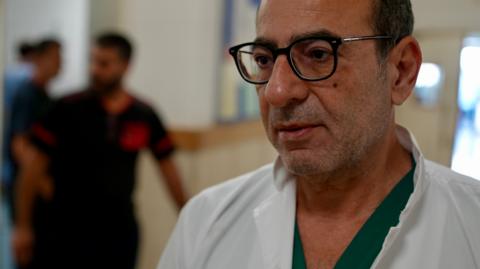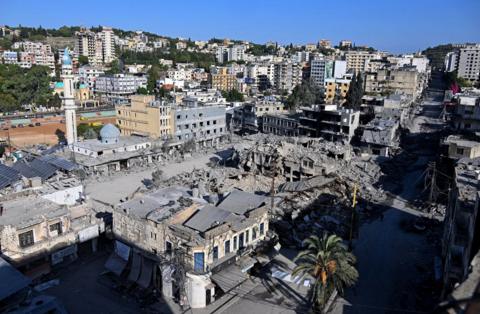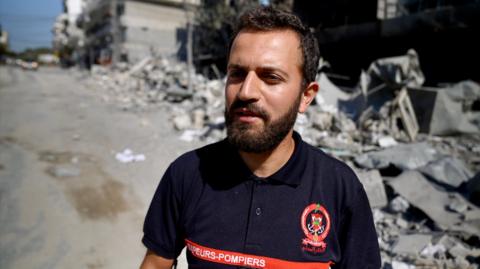When the air strike hit, Mohammed was handing out hot food to elderly neighbours – something he and his friends had been doing since Israel’s latest invasion of Lebanon on 1 October.
The civil engineer, 29, was standing about 5m (16ft) away from the explosion, which destroyed a house in his village in southern Lebanon.
Layers of skin were scorched from his forehead and his cheeks, leaving his face raw and pink. His hands were charred. His abdomen has third-degree burns. Two weeks on he radiates pain, and trauma, but wants to tell his story.
“It was all black, smoke everywhere,” he says in a low voice. “It took about a minute. Then I started to recognise what is around me. I noticed my two friends were still alive but bleeding a lot. It took about five minutes for the people to get us out.”
Mohammed recounts the horrors from his bed in the Nabih Berri government hospital, which is perched on a hilltop in Nabatieh. It is one of the biggest cities in the south, and just 11km (seven miles) from the border with Israel, as the crow flies. Before the war it was home to about 80,000 people.
Mohammed says there was no warning before the strike – “not at all, not to us, not to our neighbours, not to the person inside the house that was hit.”
That person was a policeman, he says, who was killed in the attack.
“We are not military,” he says, “we are not terrorists. Why are we being hit? The areas that are being hit are all civilian areas.”
Mohammed will return home to his village, Arab Salim, when he is discharged, though it remains under fire. “I don't have anywhere else to go,” he says. “If I could [leave] I would. There's no place.”
